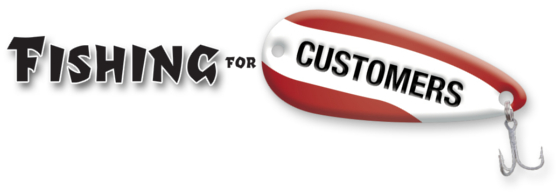I don’t play often, but I appreciate a good game of poker. Poker makes a pretty good analogy for marketing, and for business.
Poker players know what they hold in their hands, they carefully watch what everyone else appears to be doing. They make educated guesses as to the cards the other players hold.
Poker players hoard their resources until they know they hold a winner, then they confidently apply all of their resources to winning that particular hand.
At the end of the game the winner takes the whole pot. The loser loses everything.
The other players pick up a few bucks now and then and manage to stay in the game.
In real life marketing the winning hand is held by the company with the greatest share of mind. Let me give you an example.
Name the First Brand of Coffee You Think of
Now name another.
Can you name a third?
Chances are that you named your first coffee brand rather quickly. The second came almost as quickly.
Most people take slightly longer to name the third brand.
Most People Purchase the First Brand that Comes to Mind.
Would you like to see how 3,000 other people* answered that question?
People remembered these brands in roughly the same proportion they buy them.
Conclusion #1: Share of mind predicts share of market.
Conclusion #2: The first name that shoppers think of is the one they buy.
How does a company become the first name on the customer’s mental list, and thus hold the face cards in the marketing poker game?
The Easiest Way is to Actually be First.
Who was the first man to fly solo across the Atlantic? The second? How about the first woman to fly solo across the Atlantic?** Charles Lindberg and Amelia Earhart won those hands. You can’t even name the losers.
You might remember the second man to set foot on the surface of the moon, but can you name the third?
Can you name the third expedition to the North Pole? The third Pope? The third signature on the US Declaration of Independence? (How about the third amendment to the Constitution)?
In share of mind, share of market, and poker, third position is a loser. Winners come in first. Second place sometimes makes a few bucks. Beyond that, money gets very tight.
“But wait a minute, Chuck” (I can hear you saying), “I have a small business in a small town. I’m not the first at anything.”
This is Where Marketing Makes a Difference.
Charles and Frank Duryea built the first gasoline-powered automobile in 1893 – a full ten years before Henry Ford got into the business.*** Henry made the automobile affordable to every household, creating phenomenal word of mouth on the Model T. Henry held the winning poker hand, and became the most famous automobile manufacturer of all time. How many of the losing hands can you even remember?
The best selling MP3 player of all time is the iPod, but Apple didn’t invent the device. Rio did, in 1998, nearly three years before the iPod hit the market. Rio built an expensive toy for people who loved technology. Apple created a toy for people who love music. Apple wins that poker hand. (And, tell the truth, until I mentioned the name, you didn’t even remember the Rio player, did you)?
Your objective is to make your company the one that people automatically think of when they need what you sell. When you’re first on that list, they don’t even think about buying elsewhere.
You see, the first company to make a claim has an 85% chance of being remembered for that claim. The second company has about a 15% chance. The third company less than 5%.
Ford and Apple simply out promoted Duryea and Rio, respectively. Neither was first in the market. Each became first in the minds of their prospective customers.
Can You be First at Something?
Absolutely. In fact, its essential.
To be remembered, to hold top position in share of mind, to hold the winning hand in marketing your business, you must be first at something.
I’d suggest that you choose to be first in the reason your existing customers do business with you now.
Find out what your current customers believe you provide that they can’t get anywhere else. Then, start promoting that. Promote it to the point that you’re now playing in a whole new game, and in this game you hold the winning cards.
Your Guide,
Chuck McKay
 Your Fishing for Customers guide, Chuck McKay, gets people to buy more of what you sell.
Your Fishing for Customers guide, Chuck McKay, gets people to buy more of what you sell.
Have questions about finding a niche and being first in it? Drop Chuck a note at ChuckMcKay@ChuckMcKayOnLine.com. Or call him at 304-208-7654.
* BRANDPOLL survey of coffee brands, January-March 2001.
** Charles Lindberg, May 20, 1927; Amelia Earhart, May 20, 1932 on the fifth anniversary of Lindberg’s crossing.
*** Nicholas Joseph Cugnot designed the first steam powered self-propelled vehicle in 1769. The device was so heavy that it had to run on roadways of steel, and evolved into the modern locomotive. Etienne Lenoir patented the first practical gas engine (coal gas) and drove a car powered with one from Paris to Joinville in 1862.



